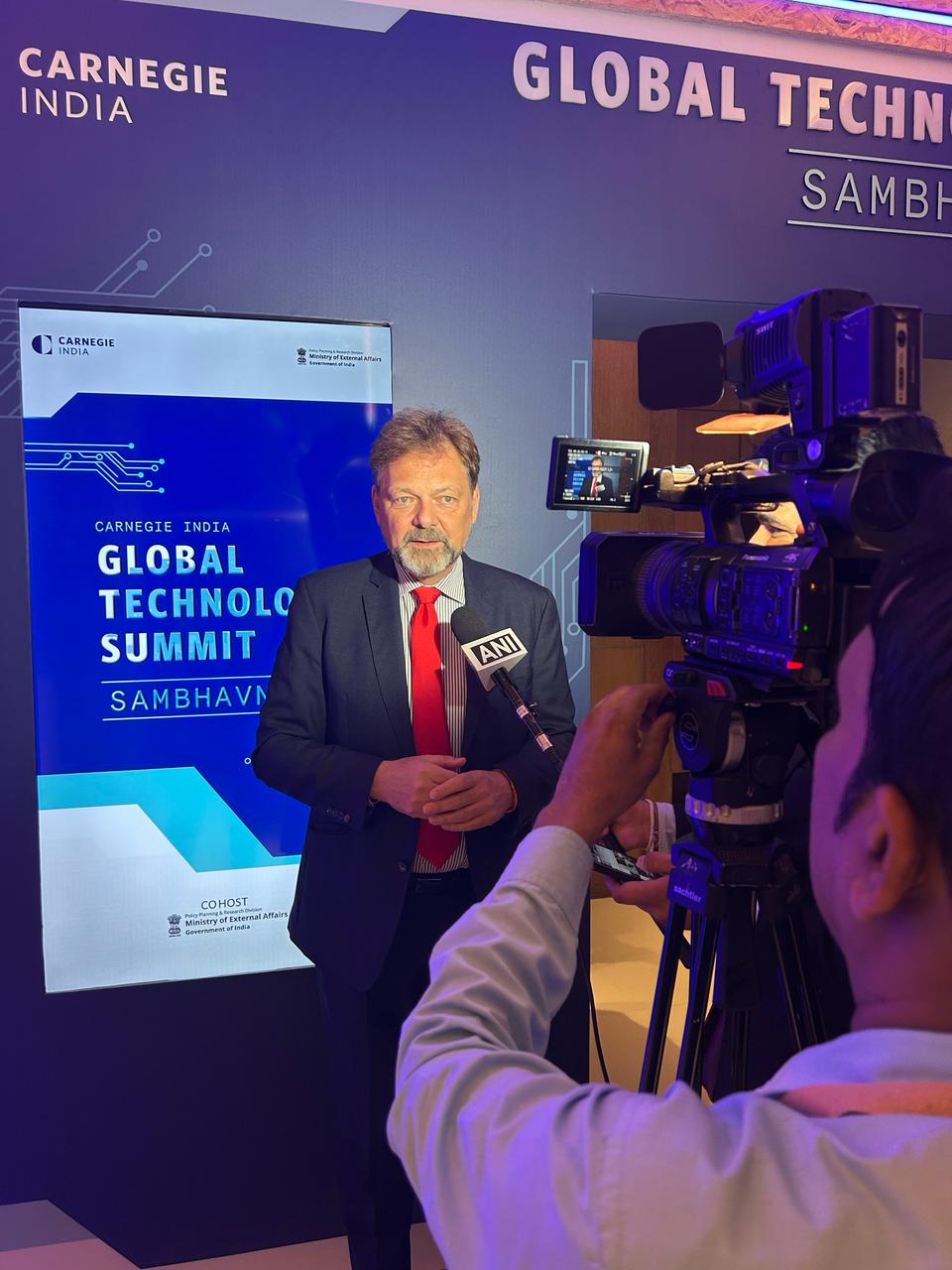Germany’s incoming government is set to prioritize India in its foreign policy, with a particular focus on enhancing defence cooperation and exploring new trade opportunities, according to Ambassador Dr. Philipp Ackermann. This commitment was underscored during his address at the Carnegie Global Tech Summit.
India’s Central Role in Germany’s Diplomatic Agenda
Dr. Philipp Ackermann, Germany’s Ambassador to India and Bhutan, revealed that India will feature prominently in the new German government’s diplomatic strategy. The coalition agreement between the two leading German political parties highlights India’s importance, especially in strengthening bilateral ties across various sectors.
“The coalition agreement explicitly mentions India’s name and makes it clear that India will play a key role in our foreign policy,” Ackermann said. “The new government is committed to enhancing relations, particularly in defence, and I am pleased about this commitment,” he added.
Defence Cooperation Takes Centre Stage
One of the key focus areas in the new government’s agenda is defence cooperation. Ackermann emphasized that military ties between Germany and India have been intensifying, with a special focus on the Indo-Pacific region.
“The German government is dedicated to supporting India’s military ambitions, especially regarding the ongoing submarine deal. We are committed to advancing our defence collaboration,” Ackermann said. Germany has been actively involved in India’s Project-75I programme, which aims to build six conventional submarines for the Indian Navy.
India-EU Free Trade Agreement Gaining Momentum
Germany is also pushing for a Free Trade Agreement (FTA) between India and the European Union. Ackermann expressed strong support for the agreement, highlighting its potential to boost economic ties.
“We are eager to see progress on the FTA and hope for a timely resolution. While Germany is not directly involved in negotiations, we support both the EU and Indian governments in this matter,” he stated.
The European Union’s Ambassador to India, Herve Delphin, also confirmed the renewed momentum in FTA discussions, with both sides aiming to finalize a deal by the end of 2025.
European Commitment to Global Trade
Ackermann reflected on Europe’s commitment to global trade, especially amid geopolitical uncertainties. He praised the EU’s response to shifting dynamics, citing the leadership shown during recent developments in the United States. “Europe has demonstrated resilience and wisdom in its approach to global challenges,” he said, reinforcing the importance of collective efforts in supporting free trade.
India’s Expanding Global Footprint
The ambassador also highlighted India’s growing global presence, particularly through its private sector companies expanding internationally. This globalisation of Indian businesses opens up new avenues for economic collaboration with Germany.
“When Indian businesses go global, it becomes essential to ensure trade agreements that reduce tariffs. This benefits both Indian and German companies,” Ackermann remarked.
Strengthening Indo-German Bilateral Ties
Looking ahead, Dr. Ackermann expressed confidence that the incoming German government would be proactive in fostering stronger bilateral ties with India. “We expect a very active and engaged approach from the new government towards enhancing the India-Germany relationship,” he concluded.
A Bright Economic Future
In terms of trade, Germany remains one of India’s key partners within the European Union. Bilateral trade has flourished, with Indian exports to Germany totaling USD 10 billion in the 2023-2024 fiscal year, and imports from Germany reaching USD 16.7 billion. This robust economic relationship is expected to strengthen further under the new government’s focus on deepening ties with India.
The incoming government’s strategic emphasis on defence, skilled labour migration, and trade cooperation marks a new chapter in Indo-German relations, one that promises significant opportunities for both nations.



